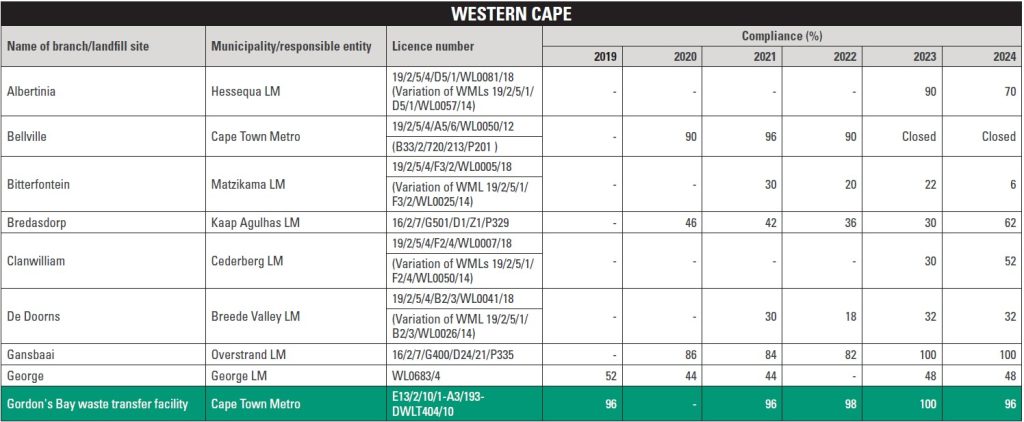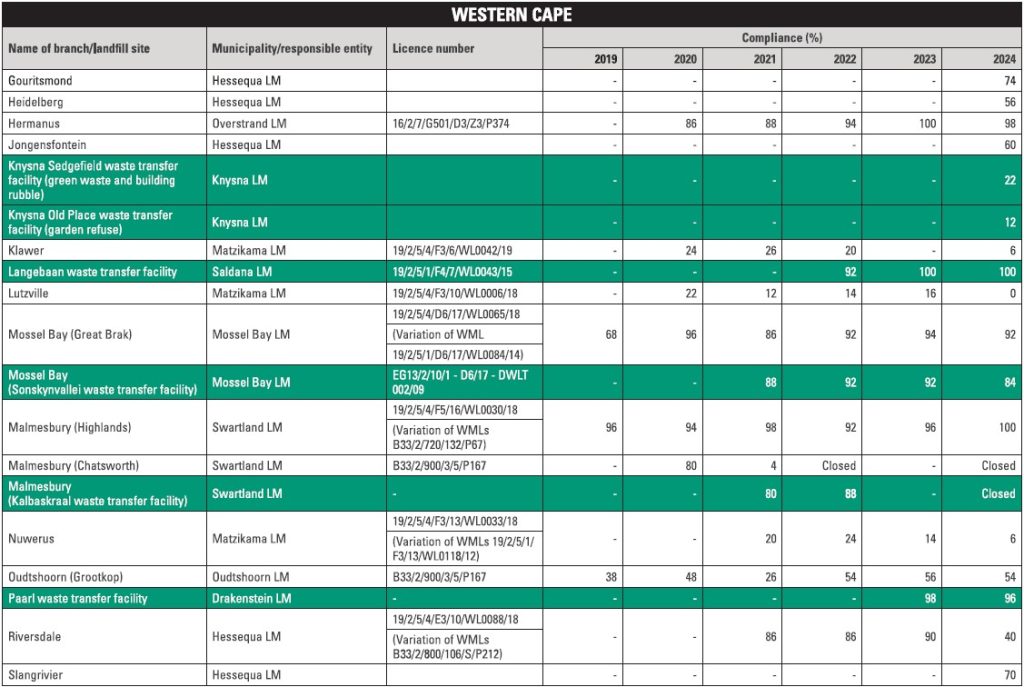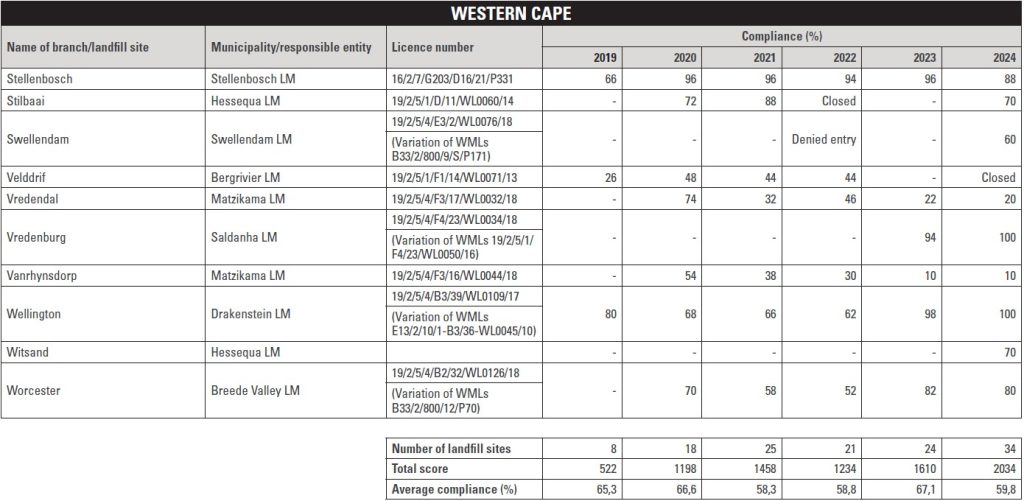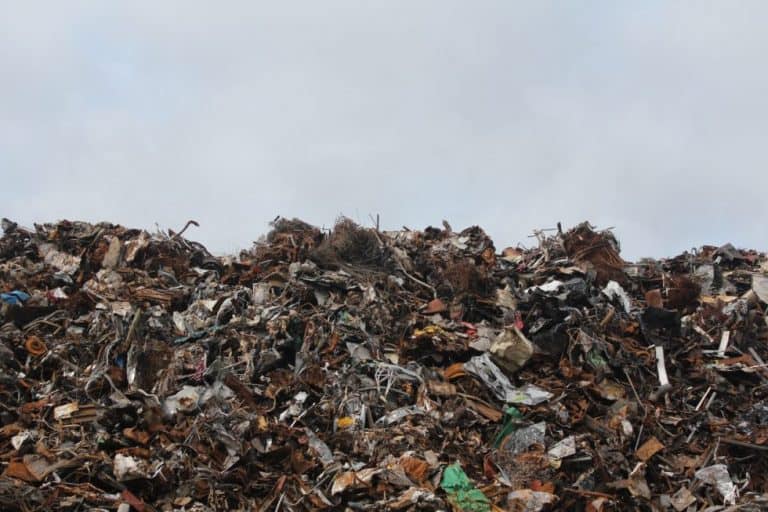Western Cape’s landfill sites among the best in SA
Out of the 189 landfill sites that AfriForum has audited across the country, the largest number of landfills that have passed are located in the Western Cape. A total of 12 landfill sites met at least 80% of the audit requirements. The landfill sites in Gansbaai, Malmesbury, Vredenburg and Wellington, as well as the Langebaan transfer station, also met 100% of the minimum legal requirements for responsible waste management.
A total of 38 landfill sites were visited in this province, of which 34 were formally audited, while four sites were closed.
However, not all the Western Cape landfill sites have fared well. The landfill site in Lutzville met none of the audit requirements, while both Bitterfontein, Nuwerus and Klawer only met 6% of the requirements. The transfer stations in Knysna performed just as poorly. The Knysna Old Place transfer station, that is used for garden waste, met 12% of the requirements, while the Knysna Sedgefield transfer station, where, among other things, construction debris is dumped, met 22% of the audit requirements.
This is how the landfill sites in Western Cape compare:




According to Jacques Benade, AfriForum’s District Coordinator for the Boland Region, most landfill sites in the Western Cape are in a worse than expected condition. “Garbage from any urban area not only creates an aesthetic problem, but also poses serious health risks if it is not managed effectively. It would be regrettable if the standards of landfill sites in the Western Cape, like those of other provinces, continue to retrogress.”
AfriForum is already planning a meeting with Dr. Dion George, Minister of Forestry, Fisheries and the Environment (DBFO), to share the landfill audit report’s findings with him and request a formal investigation against Western Cape’s non-compliant municipalities. AfriForum is of the opinion that South Africans’ constitutional rights, such as the right to a clean and healthy environment, are being denied by the poor management of landfill sites, therefore the DBVO will urgently have to call municipalities to account.











